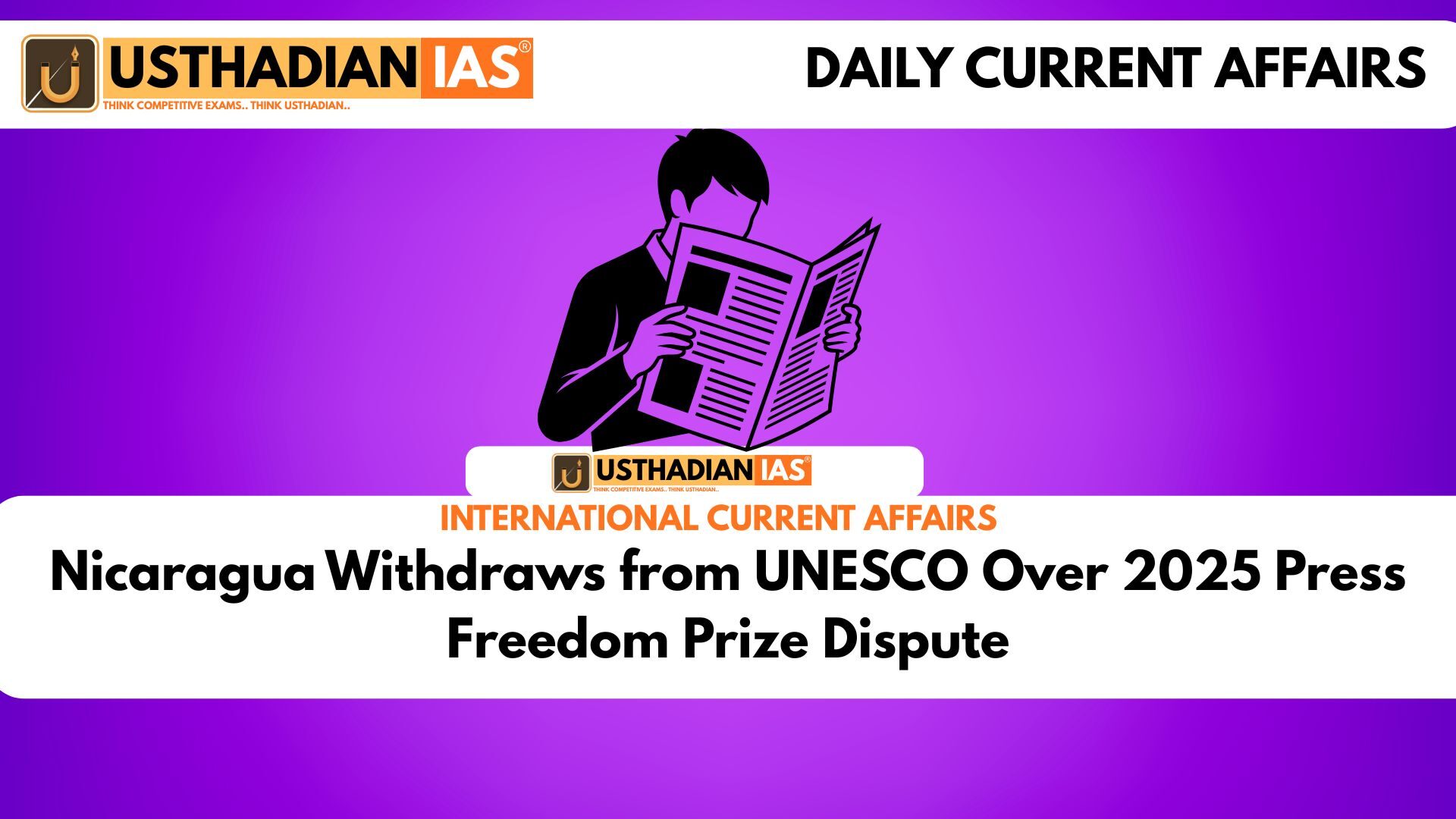Diplomatic Rift Triggered by Journalism Award
Nicaragua Withdraws from UNESCO Over 2025 Press Freedom Prize Dispute: In a bold diplomatic move, Nicaragua has officially withdrawn from UNESCO following a dispute over the 2025 Guillermo Cano World Press Freedom Prize. The award was granted to La Prensa, an independent Nicaraguan newspaper known for its critical reporting. The Nicaraguan government condemned the recognition, claiming it favored political dissent and interfered in the country’s internal affairs, sparking a broader conflict with the UN’s cultural and press freedom arm.
The Award at the Heart of the Controversy
The Guillermo Cano World Press Freedom Prize, created in 1997, honors journalists or media organizations that demonstrate exceptional courage in defending press freedom. Despite government objections, UNESCO awarded the 2025 prize to La Prensa for its resilience in reporting under threats, censorship, and state repression. Celebrated each year on May 3rd—World Press Freedom Day—the award has become a symbol of global solidarity with journalists working under authoritarian regimes.
La Prensa: A Voice Under Pressure
La Prensa, one of Nicaragua’s oldest newspapers, has faced numerous government crackdowns, including raids, journalist arrests, and forced shutdowns. UNESCO’s recognition highlighted the publication’s role in preserving media independence in the face of increasing restrictions. The move echoes past honors given to journalists in Myanmar (2019) and Belarus (2022), reinforcing a pattern of international support for media under siege.
UNESCO’s Mission and Nicaragua’s Exit
Founded in 1945 and headquartered in Paris, UNESCO promotes global peace through education, science, culture, and communication. It supports press freedom, media development, and journalism safety. Nicaragua’s withdrawal reflects growing authoritarian resistance to international norms and raises concerns about the shrinking space for free expression in repressive political systems.
A Snapshot of Nicaragua’s Background
Nicaragua is the largest country in Central America, bordered by Honduras to the north and Costa Rica to the south, with coasts along both the Pacific Ocean and Caribbean Sea. Historically colonized by Spain and Britain, the country gained independence in 1838 after separating from the Federal Republic of Central America. Its population is primarily mestizo, reflecting a mix of Indigenous and European heritage.
STATIC GK SNAPSHOT
Nicaragua Withdraws from UNESCO Over 2025 Press Freedom Prize Dispute:
| Topic | Details |
| Country in News | Nicaragua |
| Issue | Withdrawal from UNESCO over press freedom prize |
| Prize Name | Guillermo Cano World Press Freedom Prize |
| Established | 1997 |
| Named After | Colombian journalist Guillermo Cano |
| 2025 Recipient | La Prensa (Nicaragua) |
| UNESCO Headquarters | Paris, France |
| Founded | 1945 |
| Capital of Nicaragua | Managua |
| Independence | 1838 (from Spain via Central America federation) |
| Geography | Borders Honduras (N), Costa Rica (S); Pacific & Caribbean coasts |
| Demographics | Predominantly mestizo population |








